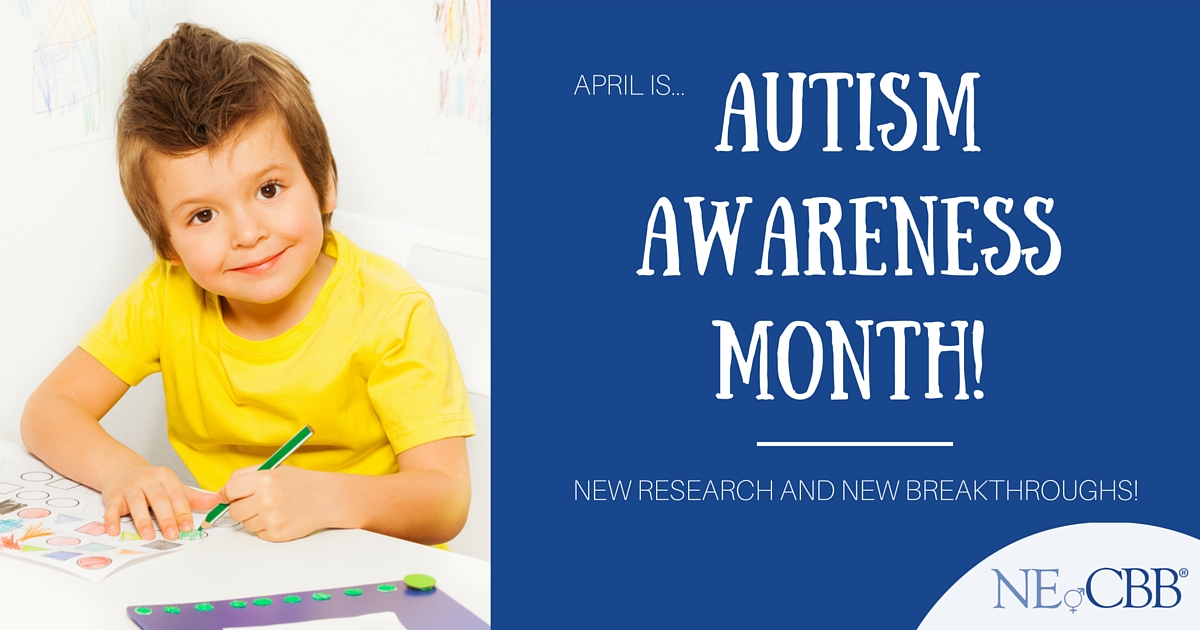 April is Autism Awareness Month, and organizations around the world will continue to spotlight awareness about Autism Spectrum Disorder (ASD) throughout the month.
April is Autism Awareness Month, and organizations around the world will continue to spotlight awareness about Autism Spectrum Disorder (ASD) throughout the month.
ASD is a set of complex, brain-based disorders that affect a person’s behavior as well as social and communication skills. According to Autism Speaks, “ASD affects over 3 million individuals in the U.S. and tens of millions worldwide. Moreover, government autism statistics suggest that prevalence rates have increased 10 to 17 percent annually in recent years.” Autism is found more often in boys than girls, and affects all racial, ethnic, and social groups.
Clinical trials are currently underway for the use of umbilical cord stem cells to treat Autism. While there is no definitive list of what factors do or do not cause autism, many studies have been done to decipher specific genetic or environmental factors. Regardless of those findings, it is worth considering a few changes that may result in better health for both mom and baby.
Here are some suggested practices that are not only beneficial during any pregnancy, they may lessen your unborn child’s risk of autism:
1. Get at least 400 – 800 mcg of folic acid daily.
Ideally, this will be folate in the form of Vitamin B9 from whole foods such as dark green veggies. However, synthetic folic acid supplements found in prenatal vitamins or some prepared foods may also be sufficient.
2. Find out what health issues have affected other relatives.
Although genetics are a factor you can’t necessarily control, it is always a good idea to better understand any diseases or disorders that have occurred in your family health history.
3. Reduce your exposure to toxins.
From second-hand cigarette smoke to household cleaners to basic air pollution, less is best. While it may seem like common sense, many people are not aware of air pollution levels and how it may affect both them and their unborn baby. You can see the current air quality in your area on the EPA website.
4. Be mindful of medications.
According to Autism Speaks, “certain drugs such as terbutaline (used to stop premature labor), valproic acid (to control seizures) and some antipsychotics and mood stabilizers” may play a role in autism risk. Speak to your doctor and be sure to balance that risk with medical need.
5. Be healthy; stay healthy.
In addition to practicing healthy habits such as diet and exercise, you want to steer clear of viruses if at all possible. Wash hands frequently, avoid anyone you know is sick, and keep surfaces clean including door knobs, phones, and light switches.
Want to learn more about the future possibilities of stem cell treatments using umbilical cord blood? Request our email newsletter for regular updates and pregnancy tips.